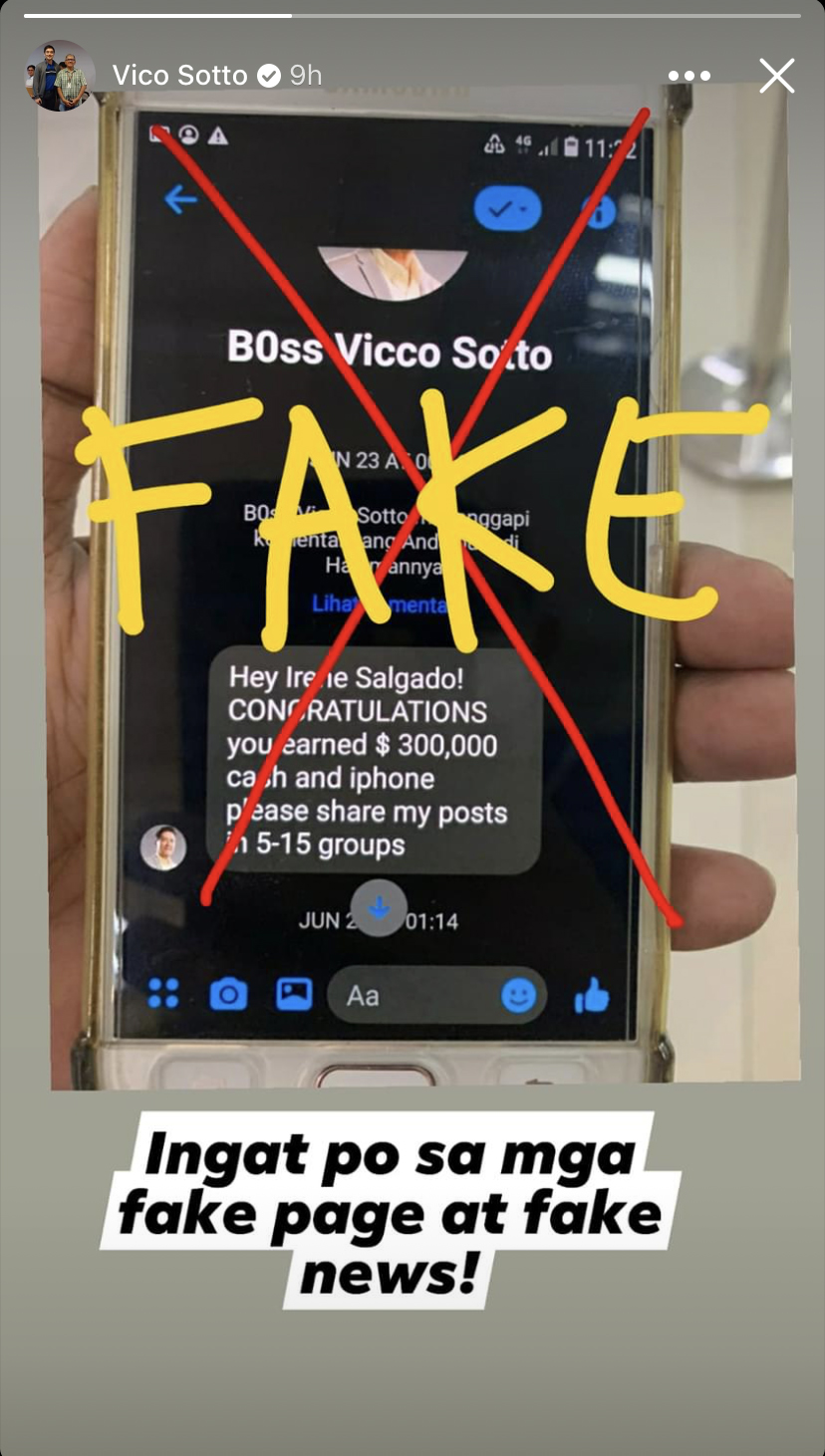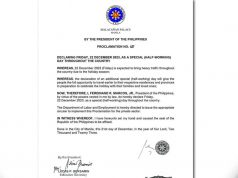
Pasig City Mayor Vico Sotto on Monday warned the public of fake social media accounts using his name to fool people into thinking they are supposed recipients of cash money and an Apple iPhone.
The 31-year-old mayor shared a picture of the supposed online impostor and prize scam through the Stories feature of his official Facebook page and wrote, “Ingat po sa mga fake page at fake news!”
The Facebook account uses the name of “B0ss Vicco Sotto” which had a message to the recipient that reads:
“Hey (recipient)! CONGRATULATIONS you earned $300,000 cash and iphone please share my posts in 5-15 groups”

The account is no longer available on the social networking site as of Tuesday evening.
Sotto actively communicates to his constituents through his official social media accounts, apart from his city’s public information page.
His sole Facebook page, “Vico Sotto,” has a blue check-mark to indicate that it is verified.
It also bears a note to the public that says: “This is my only Facebook page. Hindi sa akin ang ibang mga page na “Vico Sotto”.
His Twitter account under the handle @VicoSotto is also verified with a blue badge, indicating that it is official.
Sotto likewise has an Instagram account under the handle @vicosotto. Similar to other platforms, his account has a blue-colored verified badge as well.
This is not the first time the young city chief has been the victim of fake accounts using his name and identity.
Last March, he also asked the public’s help to report several fake Twitter accounts and reminded them to always follow verified profiles and pages, especially in times of a public health crisis.
“Don’t forget that there are a lot of fake accounts, fake quotes, fake anything-you-can-think-of… Hassle to deal (with) this on top of a health crisis.. ‘di siguro maiwasan sa panahon ngayon lalo na’t maraming bored,” Sotto tweeted before.
Creating fake Facebook accounts to impersonate someone else is punishable, according to Justice Undersecretary Markk Perete.
“As we all know, computer-related identity theft is a crime, which is defined and punished by (Republic Act No.) 10175, or the Cybercrime Prevention Act,” he said, as quoted by a news website.
The law defines “computer-identity theft” as “the intentional acquisition, use, misuse, transfer, possession, alteration or deletion of identifying information belonging to another, whether natural or juridical, without right.”
Perpetrators could be imprisoned for six to 12 years, Perete added.









